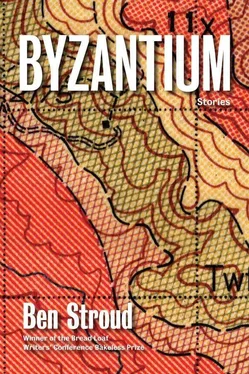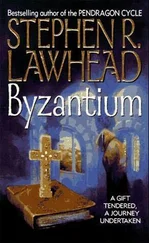He’d started off well. Within six months he’d made a good match, María Isabel, the seventeen-year-old daughter of a wine merchant. He’d seen her at a ball, standing behind a knot of protective old women, and her dark eyes, her willowy figure, her quiet manner had seemed to hold the secret to his happiness. He wrote letters and had them spirited to her room, spent nights hunched beneath her window. One evening a servant bumped into him in the street and pressed a handkerchief in his hand. It was María Isabel’s, and it contained a note in which she confessed that his constant, sorrowful figure had unlatched her soul.
More letters were exchanged. Mota saw María Isabel at other balls, trailed her during her afternoon walks. He pleaded with her father, and after a month of pressing his case he secured the man’s approval. Then, a week before they were to marry, Mota bribed the cook to sicken María Isabel’s duenna, so that he might climb through his waiting love’s window and claim her virginity. He and María Isabel lay together in her great bed with its silk-trimmed sheets until the hour before dawn, giggling as they listened to old Rosita curse and retch. A day later, though, María Isabel broke into sweats, and by the morning set for their wedding she was wrapped in lace and laid in her grave. The surgeon said the disease had risen from the lake in a fume, but Mota blamed himself. He was twenty-two. Locked in his tiny, rented room for five days, he wept until he felt his heart turn brittle. Then he went to the president of the Audiencia and begged for a job that would send him from the city, and the president gave him a mine to audit at Cuencamé.
THE VICEROY HAD TOLD MOTA he would find his guide waiting at the pulquería Hijas de Hernández, and it was there Mota went after he left the Alameda. The pulquería stood alongside a canal in the southeastern quarter of the city, behind the Convent of La Merced. Indian bargemen and idle creoles sat in its court, shaded by lemon trees as they watched leaves float toward the weir. Their watching was intense, punctuated by shouts — wagers had been placed on each leaf’s progress.
Inside the pulquería, most of the tables were empty, and those that weren’t were occupied by slouched loners or whisperers craned over their drinks. One of Hernández’s gawky daughters leaned against the bar, her face lit by a feeble shaft of sun. Alongside the far wall sat a man with the distinct look of a freshly bathed vagrant, his clothes new, his hair washed and combed, yet a nimbus of filth staining his person. His hand rested on a half-empty carafe.
Mota crossed the room toward him. “You are Father Pascual?” he asked. The previous morning, so Mota had learned, a man in tattered black robes calling himself by this name had taken the viceroy’s arm as he was leaving the cathedral. He had claimed to be a fugitive from Tayopa, said he had lived in hiding for two years, and offered, for a sizable sum, to guide a party back through the wilderness.
“I am,” the vagrant said, and gestured to the table’s empty chair. The man looked no older than Mota, but he was balding, his skin calloused and burnt, and he had mummied, claw-like hands. Mota sat and, keeping his voice low, said, “I will get straight to it. You say you come from Tayopa.”
Father Pascual bowed in acknowledgment.
“Do you have a map?”
“Here,” Father Pascual said as he tapped the left side of his forehead.
“Tell me, then, are the stories true? You Jesuits, your Yaqui slaves, bells struck in silver and gold?”
“Much of it is true,” Father Pascual said.
Mota took the carafe of pulque, tipped some into one of the spare glasses sitting on the table, and sipped. His throat burned.
“Why did you leave?”
“I had my reasons.”
“All right, so tell me how.”
“By night, by accident, and by terror.”
Worry swelled like a cloud beneath Mota’s stomach. The man shifted, turned, refused him even the slightest hint of solid truth. “You must give me a reason to trust you,” Mota said.
Father Pascual looked at him for a moment, then took a silk bundle from his pocket, laid it on the table, and unwrapped a dull, dung-colored rock streaked with the purest vein of silver Mota had ever seen.
“You could have gotten that from anywhere,” Mota said.
“Please. You know there’s no silver like this left in the New World. Except, of course, where I took it from.”
Mota felt his mouth turn dry. “Dawn,” he said as Father Pascual put away the rock. “The western causeway. I’ll have a mule ready for you.”
MOTA HAD ARRIVED AT CUENCAMÉ just four weeks after María Isabel’s death, still steeped in his sorrow, the memories of María Isabel continuing each day to leach into his blood. A branch of the mine had collapsed, and the low, steady toll of the church’s bell summoned coffin sellers to the mine’s iron gate, where already a horde of desperate men clamored for the dead men’s places. They shoved against widows, and two of the strivers toppled an unclaimed corpse. Mota watched with a mixture of fascination and disgust. Here beat the true pulse of the New World. Here its promises of happiness were given the lie, here the earth opened, loosing the upper chambers of Hell, and stripped men of all falsity.
When, a month later, Mota returned from Cuencamé with his audits, he asked the president of the Audiencia for another mine.
AFTER HIS MEETING WITH FATHER PASCUAL, Mota spent the evening rousing men for the expedition. Among the few in the city he trusted, he found three willing to go. The first was Baltazar, a half-Chichimec with a bull neck who’d once guided conductas through the Yucatán and had a skillful way with mules and the various necessities of camp life. The second was El Sepo, a hulking, muscled mulatto who wore gold rings etched with skulls on his fingers, wrote poetry in a little pigskin book, and was an expert tracker and fighter. The last was Fernando, a young, bespectacled creole scholar who always brought with him a satchel of brass instruments fashioned in Leyden and a large sketchbook complete with inks and watercolors for the making of maps and prospects. Mota hadn’t seen any of the three for months, and when he told them where they were going each one laughed and shook his head until Mota showed him the viceroy’s order with its promise of pay. Now all three waited with him at the end of the western causeway. Baltazar fiddled with the packs and hummed a tune from the city’s most recent mascarada, Fernando tested one of his Dutch glasses, and El Sepo frowned and crossed out lines in his pigskin book. Already the sun had risen an inch over the low eastern mountains, and Father Pascual was nowhere to be seen. Mota sat on his horse, attempted to stifle his nerves as he watched the city. Mexico seemed a storyteller’s vision floating in the middle of its lake, lashed to the land by narrow bridges and causeways, its bell towers and palms and poplars caught in the blue smoke of morning. But then Mota caught sight of a street cleaner pulling his cart of furred corpses; he turned away, remembering the feel of María Isabel’s cold, dead hand.
When Father Pascual at last arrived, jogging across the causeway, he shouted his apologies. The man was wearing the same clothes as the day before and carried nothing but a sackcloth bag, stained and worn to a shine at its folds. At Mota’s command Baltazar gave the ex-Jesuit a mule and the party set out.
THE FIRST STAGE OF THEIR JOURNEY, from Mexico to Zacatecas, was the easiest. The road was a smooth, tended highway that ran northwest through long-settled country, passing tidy villages, each with its bell tower and public garden, and taverns with bright wooden signs. Farmers in carts trundled by, forced aside at times by guard wagons hauling ore. Outside one village an old man sold boiled eggs and cupfuls of milk, and outside another a pig drover and his animals, caught in their cloud of dust, appeared like a spirit army on the horizon.
Читать дальше











